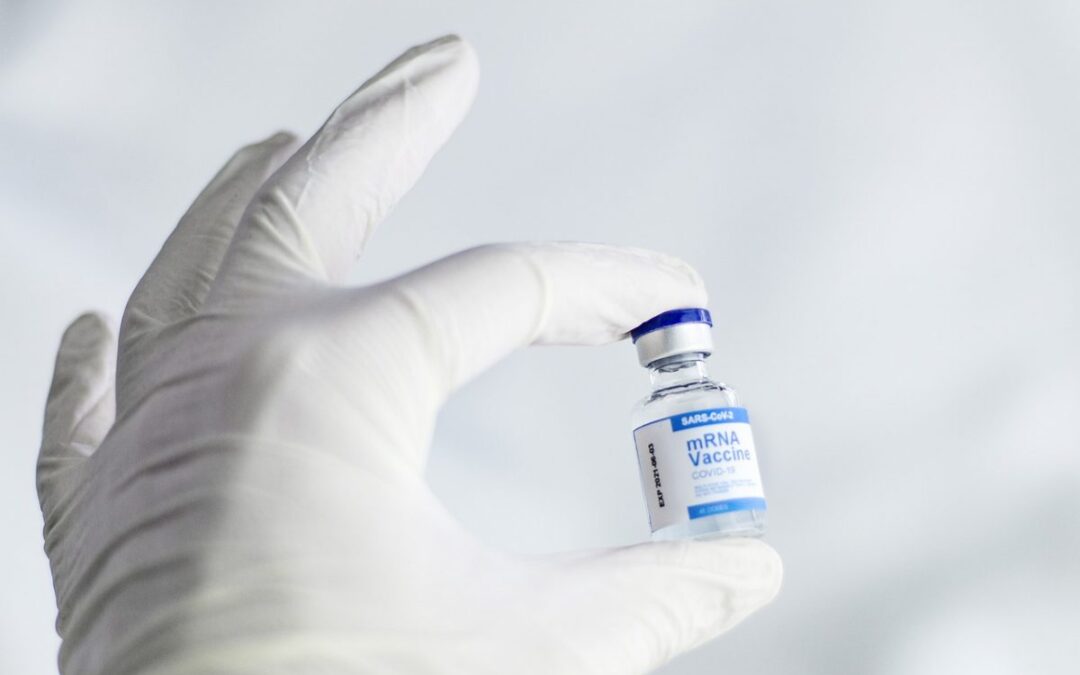By Kira Dzulynsky
When the COVID-19 vaccine first became available in mid-2021, I remember my family scrambling to try to get all of us vaccinated as soon as possible. I didn’t question anything; I trusted the system and got the vaccine with little knowledge of how it even worked. I just assumed that it was too complicated to understand given that I hadn’t taken a biology class since Grade 11.
This past semester when I was studying for my Elements of Biotechnology midterm for which I needed to study pretty basic biology concepts, I came across a practice question that asked how the COVID-19 mRNA vaccine works. Honestly, I was confused as to how that question had appeared because we had barely discussed vaccines. I felt that I couldn’t spare the time to try and figure it out, so I skipped it. Later in the semester, I was talking to one of my roommates and we were questioning the efficacy of the COVID-19 vaccines over time. I looked into it briefly, but again, didn’t feel that I had the time to spare, so never really found a concrete conclusion. Next, when the booster vaccine came out, more questions started popping into my head, so I decided to sit down and actually learn about the vaccine.
I started by reminding myself of how a virus works in general. According to the CDC, when our body is infected by a virus, the virus invades our cells and uses them to copy itself. Our immune system tries to fight off the infection causing us to experience certain symptoms such as fevers, coughs, headaches, etc. When someone is first infected by the COVID-19 virus, it can take several days or weeks for the body’s immune system to learn how to fight the infection. However, once exposed to the infection, one’s immune system learns and remembers how to protect the body against the disease. When the body encounters the same virus, “memory cells” go into action. Familiar markers (called antigens) are identified, and proteins (called antibodies) that destroy the virus are produced.
I then started to look into how the COVID-19 mRNA vaccine works. Again, the CDC website was very useful. When someone receives the COVID-19 mRNA vaccine, their cells learn to make a spike protein that triggers an immune response in our bodies. These spike proteins are also found on the surface of the virus that causes COVID-19. The presence of the spike proteins triggers our immune system to produce proteins that activate other immune cells to fight off the “infection”. This process allows the body to learn how to protect us from the actual infection in the future, without any serious or long-lasting symptoms.
My next question was regarding the efficacy of the vaccine. Why did I receive two doses? Why should I get the booster dose? From an NYTimes article, I learned that the first dose of the COVID-19 vaccine helps your body to create an immune response, while the second continues to strengthen your immunity to the virus. Various studies have been completed that test the efficacy of the COVID-19 vaccines in protecting against infection over time, but it is hard to put a concrete number to efficacy at different time points due to compounding factors involved in the studies. According to the same NYTimes article, this is what the studies have shown:
Effectiveness against infection
Effectiveness against hospitalization
After taking a look at these graphs, it definitely became clear to me that to remain protected against the virus, we need to get the booster dose. I then started to look into the details of the booster dose. From MU Health, I learned that the booster dose has the same formulation as the original COVID-19 vaccines, but in some cases may be given at a smaller dose than the primary series. Studies have shown that a booster shot can help to lengthen immunity as well as broaden and strengthen immune response against new variants. Research continues to be done regarding how effective the booster is, however, according to the UK Health Security Agency “early estimates suggest that vaccine effectiveness against symptomatic disease with the Omicron variant is significantly lower than compared to the Delta variant. Nevertheless, moderate to high vaccine effectiveness of 70 to 75 per cent is seen in the early period after a booster dose.“
To my surprise, finding all this information only took me about an hour and it wasn’t too complicated to understand. I hope this information is useful to those reading and helps to also answer some of your questions! I’m very grateful to have received my initial doses and my booster dose and believe that it is very important for everyone to try to do so because it will help things to get back to normal.

